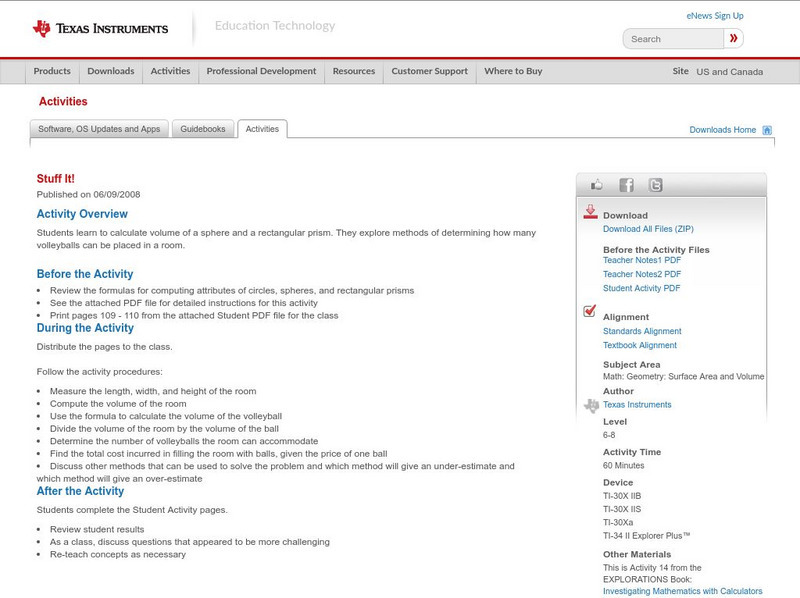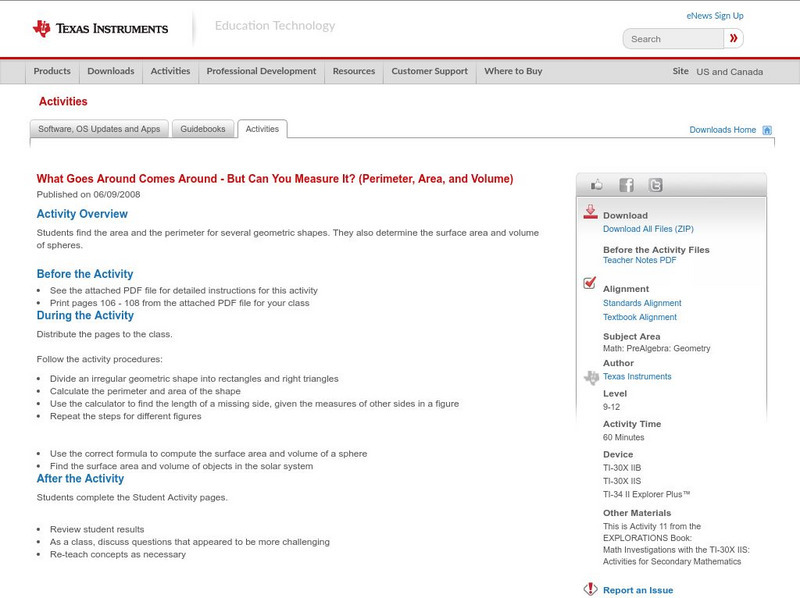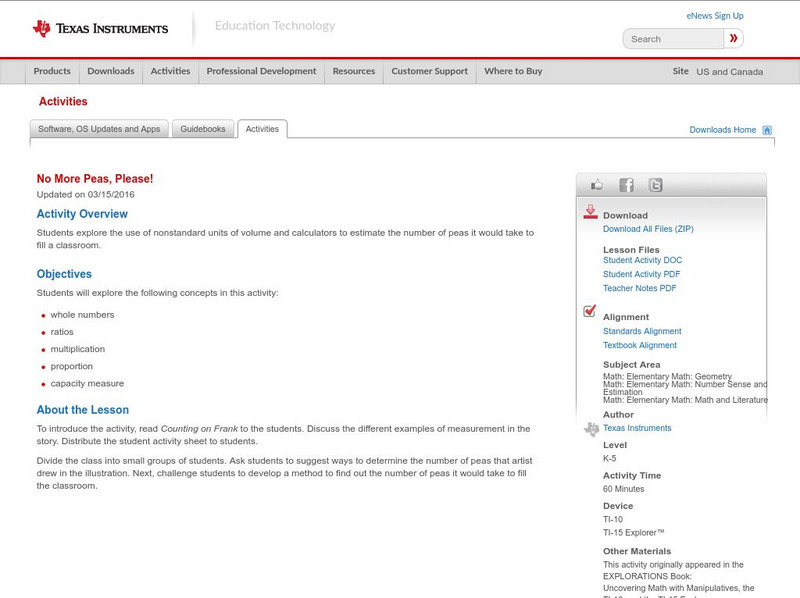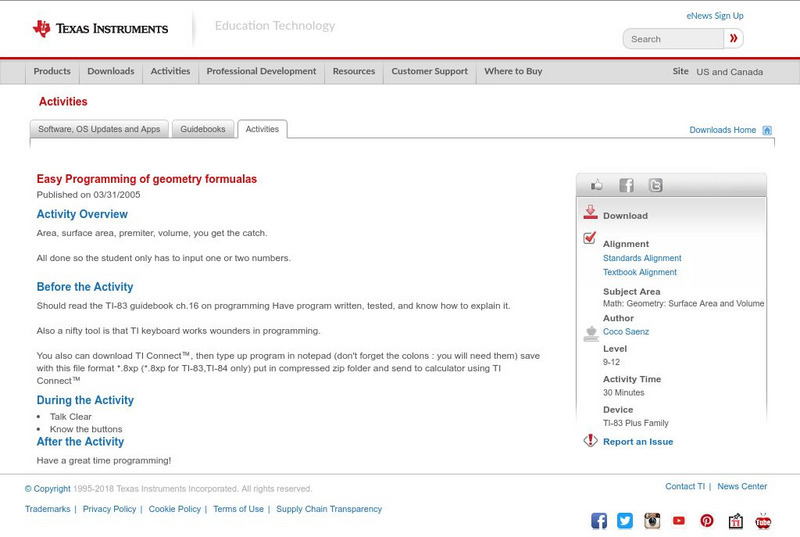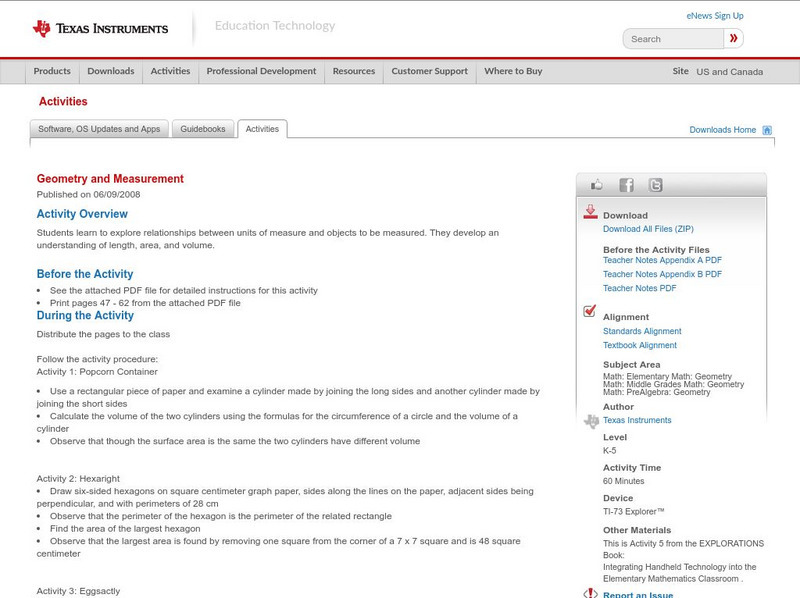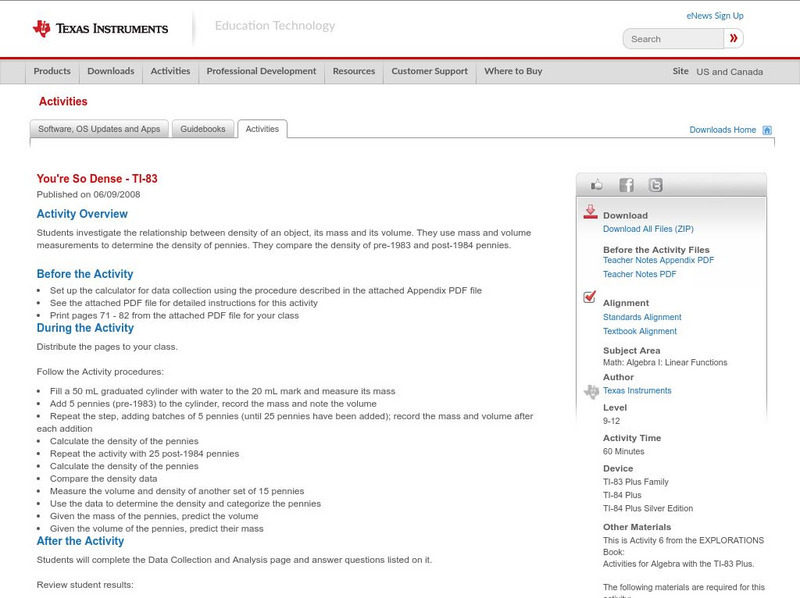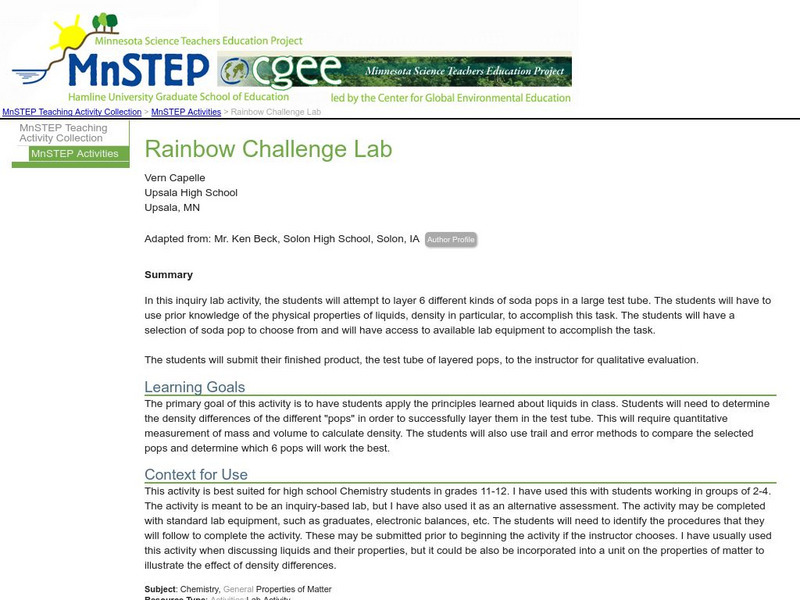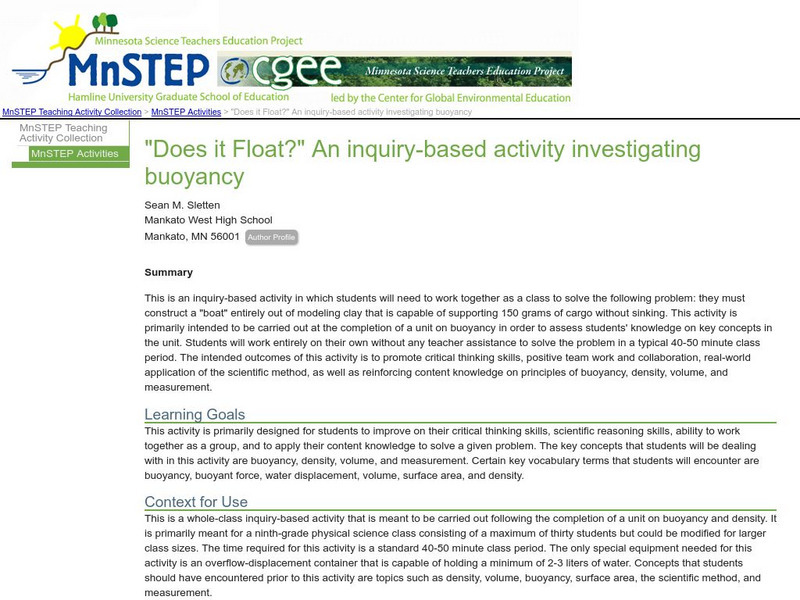Hi, what do you want to do?
Texas Instruments
Texas Instruments: The Bigger the Better?
In this activity, students calculate the surface area and volume of different shaped cell models. They develop an understanding of the differences in cells and their function
Texas Instruments
Texas Instruments: Stuff It!
In this activity, students learn to calculate volume of a sphere and a rectangular prism. They explore methods of determining how many volleyballs can be placed in a room.
Texas Instruments
Texas Instruments: What Goes Around Comes Around but Can You Measure It?
In this activity, students find the area and the perimeter for several geometric shapes. They also determine the surface area and volume of spheres.
Texas Instruments
Texas Instruments: No More Peas, Please!
In this activity, students explore the use of nonstandard units of volume and calculators to estimate the number of peas it would take to fill a class room.
Texas Instruments
Texas Instruments: Easy Programming of Geometry Formualas
In this activity, students perform area, surface area, perimeter, and volume.
Texas Instruments
Texas Instruments: Direct Variation With Powers: Surface Area and Volume
Students find the approximate surface area and volume of an apple, measuring circumference 3 ways, using the mean of the measurements to find the radius. Each students enters the results in a Table on the board.
Texas Instruments
Texas Instruments: Geometry and Measurement
Students learn to explore relationships between units of measure and objects to be measured. They develop an understanding of length, area, and volume.
Texas Instruments
Texas Instruments: You're So Dense Ti 83
Students investigate the relationship between density of an object, its mass and its volume. They use mass and volume measurements to determine the density of pennies. They compare the density of pre-1983 and post-1984 pennies.
Texas Instruments
Texas Instruments: Optimization
This activity shows the student how to determine the optimal solution for maximum volume based on the box-with-no-top problem.
Science Education Resource Center at Carleton College
Serc: Mineral Density: Teaching Accuracy, Slope, and Percent Error
Students explore the meaning of density and use their math skills to graph mass/volume data, write an equation for a line, and interpret the slope of the line. Students also find the density of two unknown mineral samples and use those...
Science Education Resource Center at Carleton College
Serc: Rainbow Challenge Lab
In this inquiry lab activity, young scholars will attempt to layer 6 different kinds of soda pops in a large test tube using their knowledge of density and other physical properties of liquids.
Science Education Resource Center at Carleton College
Serc: Investigating Floating and Sinking: Density
This investigation introduces the concepts of volume, mass, and density and how they interact. Students will make predictions of whether an object will float or sink after finding mass and volume of an object.
Science Education Resource Center at Carleton College
Serc: Measuring Liquid Volume
In this lab, middle schoolers will measure and combine colored liquids to receive the expected results. The intended outcome would be to take primary colored liquids, measure them and combine them to create a "rainbow" colored set of...
Science Education Resource Center at Carleton College
Serc: "Does It Float?" an Inquiry Based Activity Investigating Buoyancy
This is an inquiry-based activity in which students will need to work together as a class to solve the following problem: they must construct a "boat" entirely out of modeling clay that is capable of supporting 150 grams of cargo without...
Science Education Resource Center at Carleton College
Serc: Mini Lab: Investigating Gas Laws
For this activity, students investigate two gas laws: Charles and Boyle's. They will determine the relationship between gases and certain variables (temperature, volume and pressure), then watch a demonstration and determine what...
Science Education Resource Center at Carleton College
Serc: Air Is Matter
It's difficult at times for younger students to realize that air has mass. Matter is something that has volume (takes up space) and has mass (*can be weighed). Air does take up space, even if we can't see it, and air has weight, even if...






